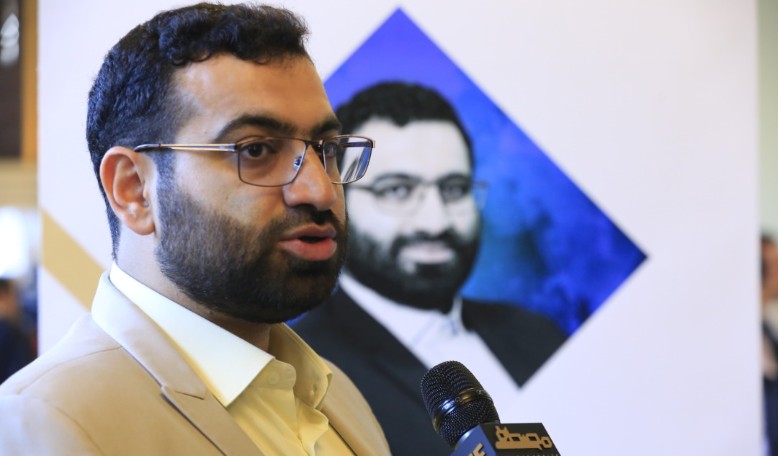Mustafa(Pbuh) Prize laureate presented his Cancer Diagnostic Probe


The 2019 Mustafa(Pbuh) Prize laureate introduced his accurate, sensitive Cancer Diagnostic Probe (CDP) during the 5th round of EISA.
MSTF Media reports:
Mohammad Abdolahad, faculty member of School of Electrical and Computer Engineering at University of Tehran and a 2019 Mustafa Prize laureate, presented the Cancer Diagnostic Probe (CDP) he has developed along with his team, in a pitch-deck during the 5th round of Exposure of Industries to Scientists’ Achievements (EISA) on December 2.
He stated that CDP is “an innovative surgical system for intraoperative margin detection” during breast cancer surgery which can show the surgeon the presence of any lesions involved by Neoplastic cells.
This system has received medical approval, is used by many surgical centers, and has been granted US patent.
Elaborating at length on how this system works, he said “one of the most important physiological differences between cancer cells and normal cells is their metabolism on using glucose and oxygen to produce energy.”
“During cancer transformation, the cells switch their metabolism from Oxidative phosphorylation to glycolysis. This glycolysis has two kinds: anaerobic glycolysis and aerobic glycolysis,” he explained.
The Warburg Effect in cancer cells is a situation in which the cancer cells not only use glycolysis to supply the energy themselves, but also activate some signals of metabolism in peripheral cells such as “fibroblast and macrophage in ambient of the tumor” and activate glycolysis in those cells, he added.
If on the margins of a tumor, we have some cells with activated glycolysis, we will have lactate, pyruvate, and hydrogen peroxide on the tissue around the tumor—margins, Abdolahad noted, adding that “especially on the cavity margins, these cells remain in the body after dissecting the tumor.”
Cancer Diagnostic Probe (CDP) system that he has designed, “can detect the presence of hypoxia glycolysis in the ambient of cavity margins,” the Mustafa Prize laureate said.
It detects the hydrogen peroxide released by the hypoxia neoplastic cells ranged from preneoplastic to advanced cancer cells.
Moreover, it can clear the margins from neoplastic cells in patients’ bodies and assist the surgeon to have “a successful breast-conserving surgery without resecting a huge mass,” he highlighted.
The system has 3 main parts: a disposable sensor; a wireless electrical head probe used by the surgeon; a main control computer system which receives the signals from the head probe, “analyzes them in less than 30 seconds,” and gives the diagnosis of the presence of neoplastic cells in the margin to the surgeon.
Talking about the design and fabrication of this system, he stated that “after 4 years of clinical trials we achieved very good calibration protocols on all kinds of pathological stages of breast tumors.”
“So far, around 500 surgeries have been carried out with the aid of CDP,” he said.
Abdolahad showed the statistical analysis carried out on more than 4000 samples, concluding that the accuracy and sensitivity of CDP compared to frozen pathology is higher.
“It is very important to note that permanent pathology is carried out on dissected tumors; not inside the body, while CDP can detect the presence of neoplastic legions inside the body,” he underscored.
Hence, it can not only serve as “an alternative for frozen pathology,” but also can be “complementary to permanent pathology,” he remarked.
Mohammad Abdolahad was awarded the 2019 Mustafa Prize for his outstanding achievement in Translating the Behavior of Healthy and Cancerous Cells into the Electronic Field (New Methods in Diagnosis of Cancer).
EISA, a platform composed of various commercialization services in the STI Eco-system, is developed by the Mustafa Science and Technology Foundation to meet the needs of the Islamic world’s knowledge-based industry and scientific community, enabling technological achievements in products and services to be introduced to new markets, industries, and investors. The 5th round of EISA focuses on “Cutting-edge Healthcare and Medical Achievements.” This round is held virtually from November 30th to December 7th, 2020.